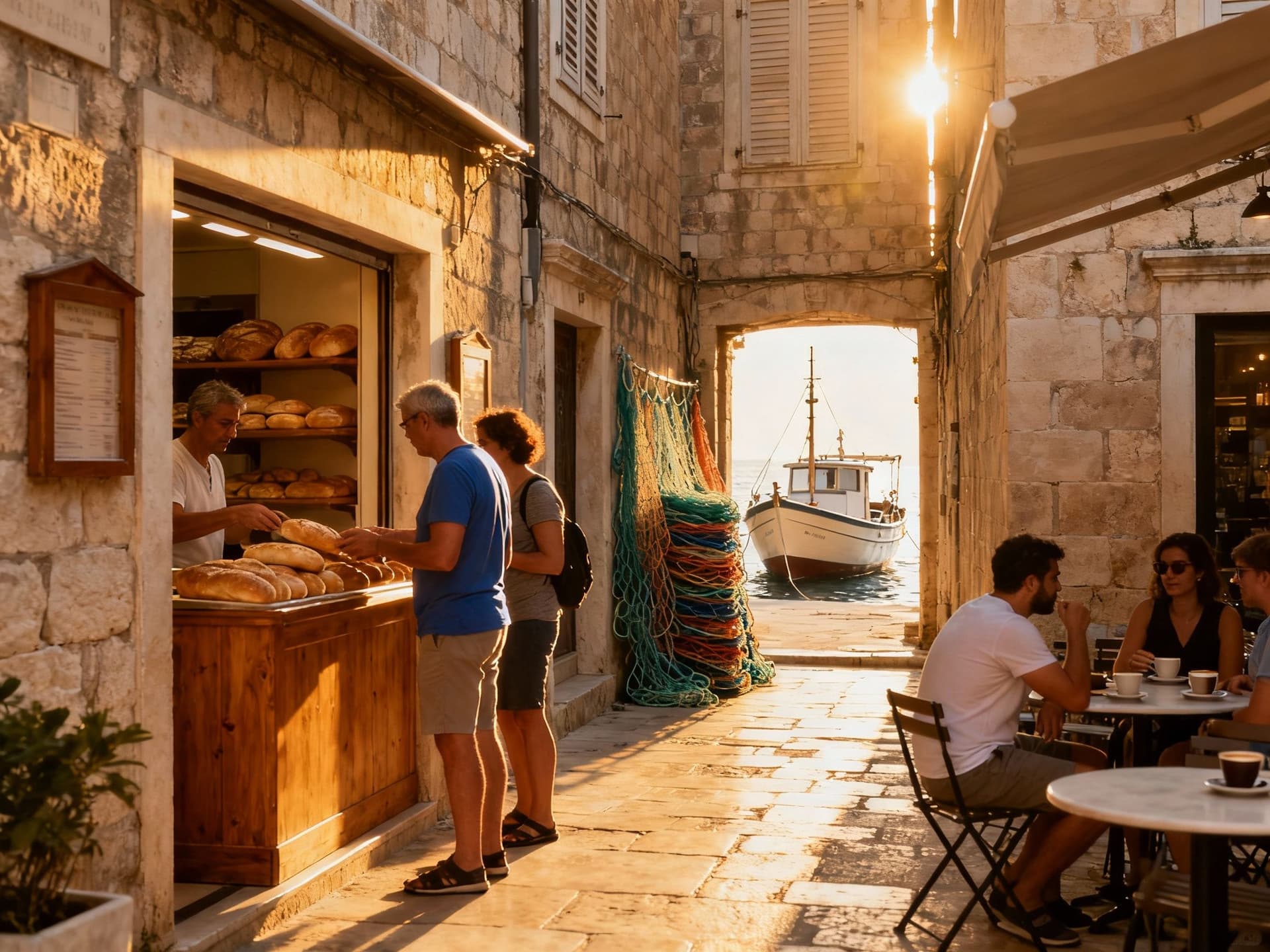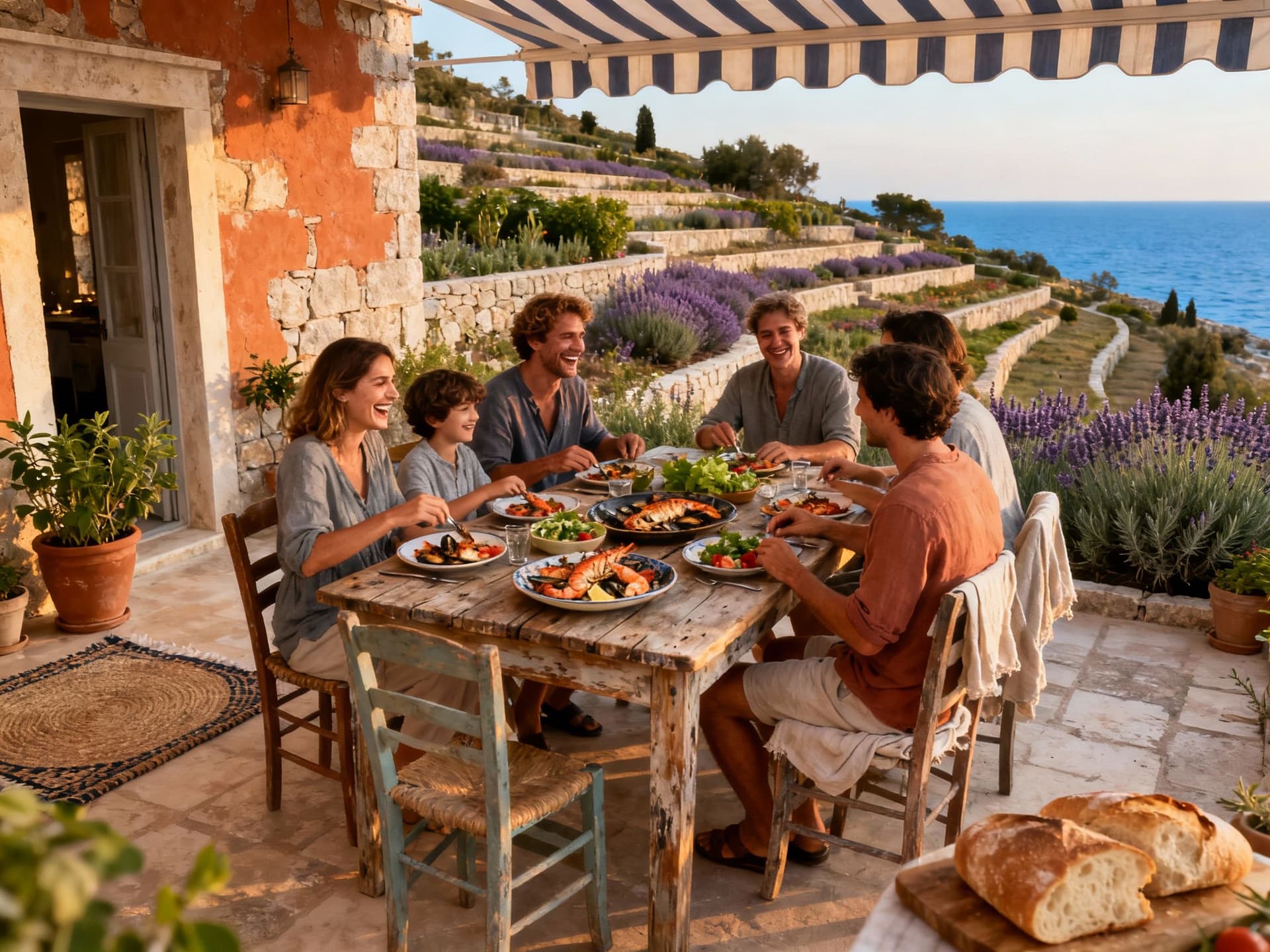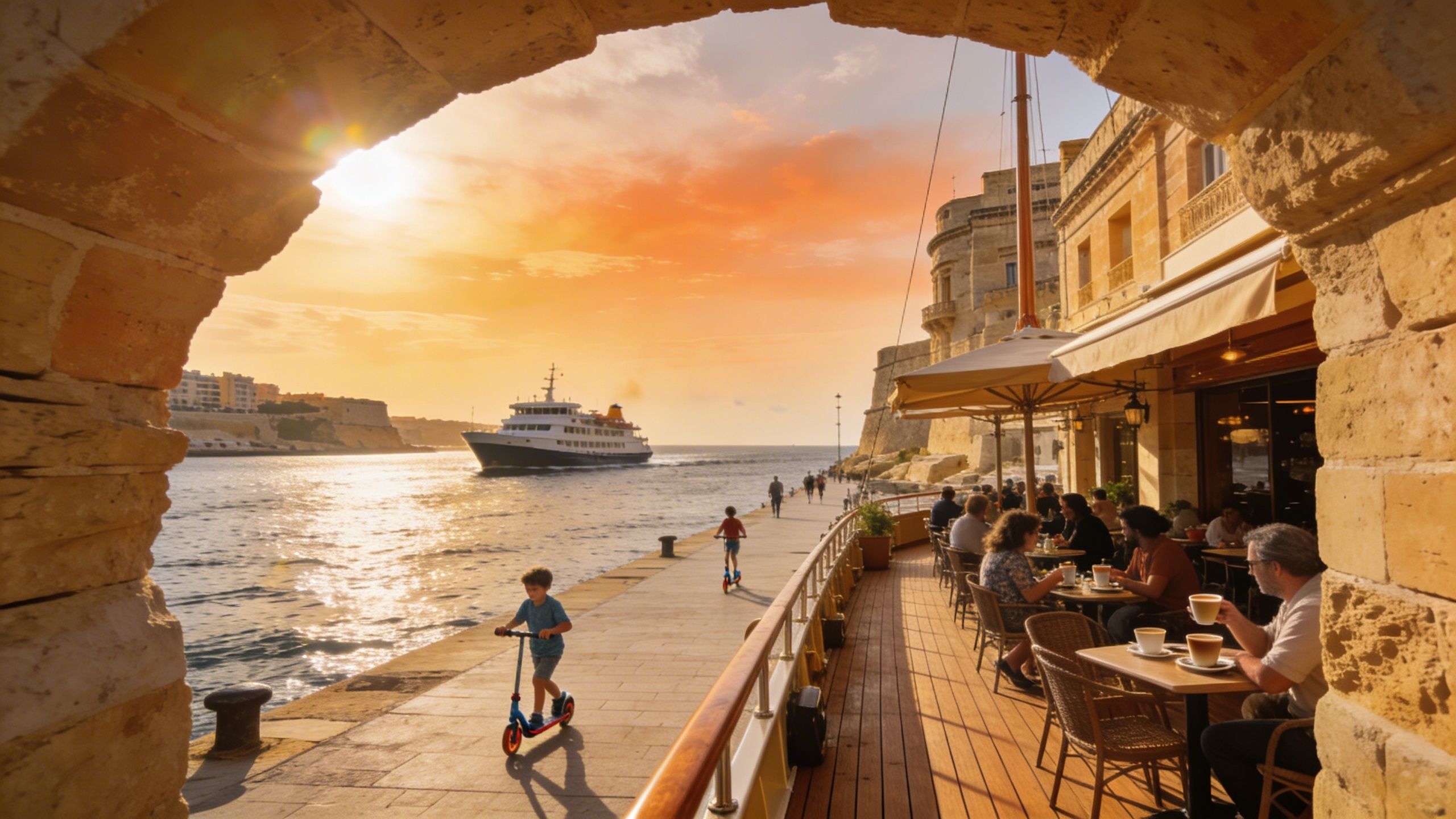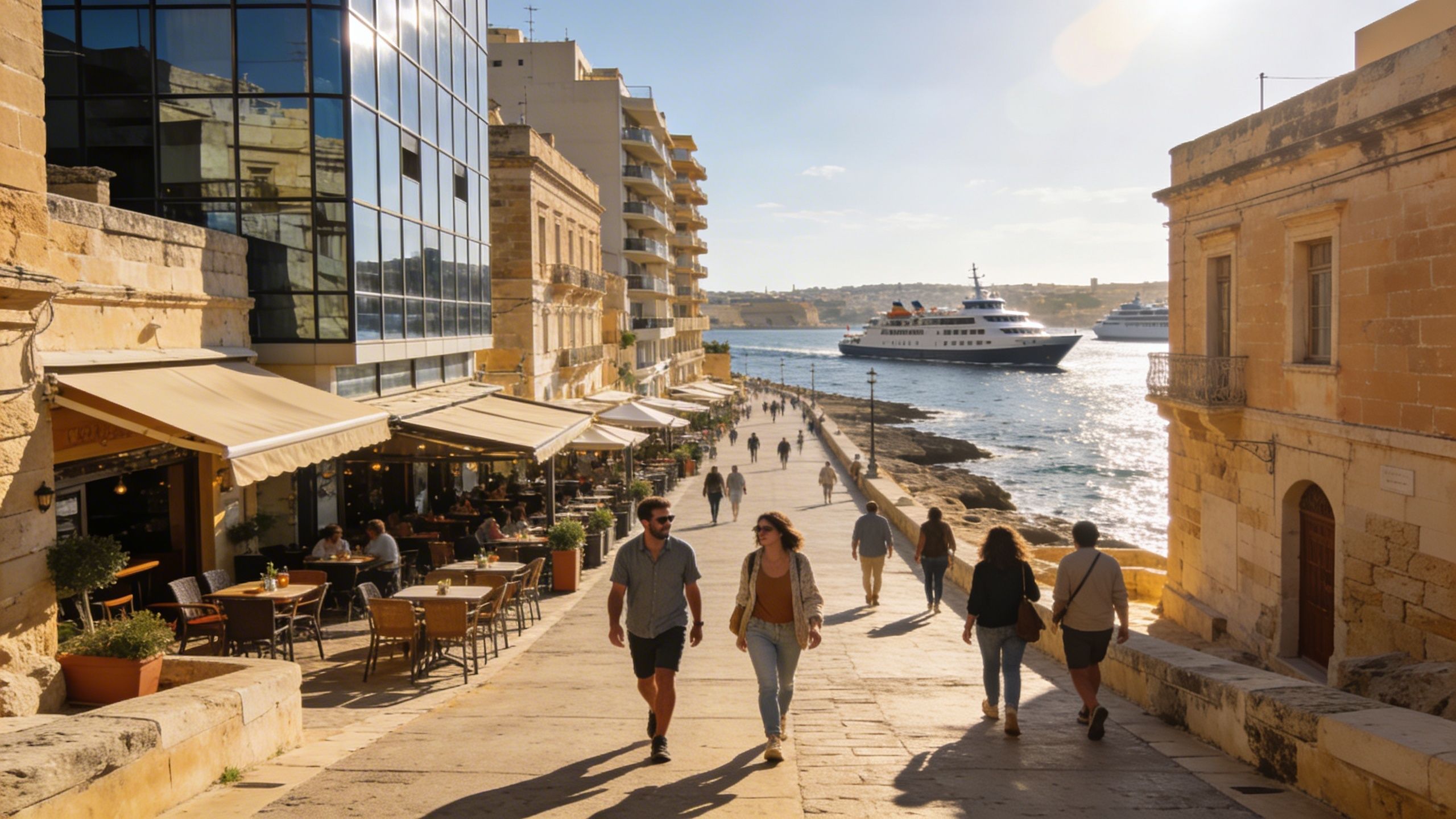Croatia: Life, Law and Late‑Season Opportunity
Croatia’s lifestyle is magnetic — but changing tax rules, residency limits and reciprocity rules mean buyers must pair romance with legal rigor.
Imagine waking to sea-salt air, a café espresso on a stone table in Split’s Varoš, then signing the preliminary contract five streets later. Croatia sells a rhythm — slow coastal mornings, buzzy summer nights, and quiet winter streets where bargains sometimes hide. But the legal and fiscal scaffolding that supports that life is quietly changing; the laws that shape residency, taxes and what you can actually buy matter as much as the view.
Living the Croatia lifestyle

Picture breakfast at Špica in Split, a late-afternoon swim on Dubrovnik’s Lapad, or a weekend of truffle hunting in Istria. That sensory life is real and varied: Dalmatian coastlines for small‑boat living, Istrian hill towns for slow food aficionados, and Zagreb neighbourhoods for year-round urban life. These lived rhythms shape the type of property you’ll actually use — a compact city flat in Donji Grad behaves differently from a stone house on Hvar’s inland lanes.
Neighborhood spotlight: Split — Varoš to Meje
Varoš keeps you within earshot of Diocletian’s Palace and neighborhood bakeries; Meje is quieter, with terraces and olive trees. Streets like Ulica Svetoga Ivana host early-morning markets and late-night konobas. If you want the coast within walking distance but still a residential rhythm, these micro-districts explain why buyers pay premiums — and why off-season negotiations can be kinder.
Food, markets and seasonal life
Weekends mean markets: Dolac in Zagreb hums on Saturday; Pazar in Zadar serves fresh sardines. Seasonal changes redefine utility — holiday rentals flood coastal towns in July and August, then the scene becomes local again in October. That seasonality matters for taxes, rental yield expectations and practicalities like maintenance and winter-proofing.
- Lifestyle highlights
- Morning espresso on Riva (Split); Dolac market (Zagreb); truffle weekends in Motovun (Istria); island ferry routine from Hvar town; evening promenades on Korčula’s waterfront.
Making the move: practical considerations

Dreams meet paperwork. Recent policy moves show Croatia shifting emphasis toward property taxation to discourage speculative short‑term lets and free up housing stock for locals. That conversation translates into new obligations for owners and alters the financial case for buying on the coast versus inland towns. Know the tax landscape before you write an offer.
Who can buy what: EU vs non‑EU rules
EU/EEA citizens enjoy parity with Croatian buyers. Non‑EU nationals generally need Ministry of Justice consent based on reciprocity. In practice many buyers from the US, UK, Canada and Australia face a formality rather than a blockade, but the approval can add weeks or months and can affect whether a sale is conditional or final. For certain land types (agricultural, protected zones) additional limits apply.
Taxes that change the numbers
At purchase expect transfer tax (~3% of market value) on resales, while new builds usually attract VAT (25%). From 2025 local property levies and a new property‑based tax policy mean annual charges may apply per square metre (reported ranges in recent proposals span €0.6–€8/m2). Rental income is taxable; common regimes include a 12% flat rate on taxable rent after standard expense allowances or pauschal options for private landlords.
- Steps to protect lifestyle value and legal standing
- 1) Confirm reciprocity or use a Croatian company for purchase of restricted land. 2) Obtain an OIB (tax ID) early — required for contracts and utilities. 3) Commission a local lawyer to review zoning, pre‑emption rights and cadastral entries. 4) Build tax scenarios: purchase tax, annual property levy, and rental tax under differing occupancy models. 5) Decide on conditional contracts (pending MoJ consent) vs buying via a company structure.
Insider knowledge: what expats wish they'd known
Owners commonly discover three surprises: seasonal demand swings that skew perceived value, residency rules that don’t count property ownership toward permanent residence, and administrative timelines that make renovation plans slower than expected. Retirees and digital nomads have distinct practical workarounds, but none of these replace proper legal counsel.
Cultural and community realities
Croatians prize local networks. A neighborly konoba, the local grocer and the café owner will often influence how a property functions in practice. Learning a few phrases, attending a municipal meeting, and hiring a local property manager in peak season will change your experience from tourist to resident.
Longer-term thinking: maintenance, rental strategy, community
If you plan to rely on short-term rentals, factor in stricter rules and potential new taxes aimed at discouraging empty seasonal stock. If your plan is semi-retirement, prioritize properties with good winter insulation, reliable water and local healthcare access. In every case, the cheapest coastal view can become expensive if periodic maintenance and winterisation are neglected.
- Practical red flags to watch
- Seller without a clear cadastral extract; property with unresolved communal fees; listings that promise residency or citizenship by purchase; unclear pre‑emption rights near protected zones; short‑term lets that skirt local registration rules.
Conclusion: live the life, but do the paperwork
Croatia offers a varied, tactile life that rewards careful buyers. Start with the lifestyle you want, then test it against regulatory reality: check reciprocity, model taxes, and engage local legal expertise. With that balance you keep the view — and avoid the surprises that turn a dream into a project.
Norwegian market analyst who serves Nordic buyers with transparent pricing and risk assessment. Specializes in residency rules and tax implications.


